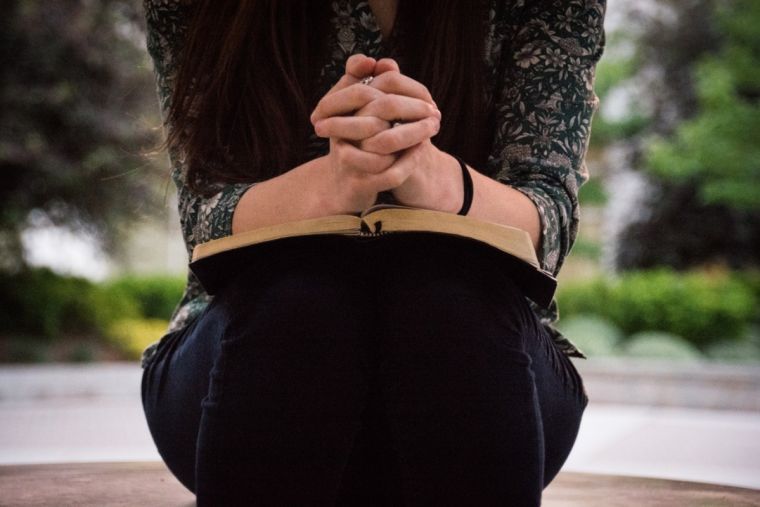When it's not OK to not be OK

A familiar adage nowadays is that "It's OK not to be OK". This is good: it's true. For all the colour of creation, times of darkness can fall upon all of us. Life is great, but sometimes it sucks and sometimes it sucks for a really long time.
This is important to recognise and great to allow for because imagine a world where we always pretended to be alright. It would be like going to the circus every day, telling yourself that you're having a good time but not really feeling sure why.
You might also have heard some people say, "Fake it 'til you make it" (i.e. pretend to be alright until eventually you are alright).
Maybe this is good advice, I don't know – but I do know that it doesn't quite work when you are having a mental breakdown.
In a shoot-out between these two sayings, there is only one winner where mental health is concerned: it is emphatically OK not to be OK.
But as with any good rule, there are exceptions, one of these being when it stops us from taking the kind of action that could change things for the better.
The life and soul of our nation is being ripped apart by mental illness and that is not OK.
Sometimes we choose to live with parasites, happily tolerating their existence, content that they will do us no harm. But poor mental health is not one of those parasites. It is a cancer that we cannot ignore.
I could shock you into agreeing with me by providing some startling statistics. Call me lazy, but I won't do that this time. Partly because numbers nauseate me but mainly because if we take time to look around, the situation speaks for itself. We are a nation on the brink of mental erosion and yet we seem to be doing very little about it.
On the whole we know that we are not OK. But something needs to happen after realising that. The next step is to realise that it is not OK that we are not OK.
What I mean by that is that there needs to be a gear change whereby seeing the state of things as they are inspires us to do something about it.
The good news is, I think we are on the verge of realising this. Increasingly we do seem to be waking up to the realisation that we are in something of a cosmic struggle for our nation's mental health.
But far from entitling us to step off the gas, this ought to compel us to put our pedal to – even through – the metal as we seek to redeem and restore our national mental health.
Some of this work is inevitably best left to the experts – researchers, counsellors, and other healthcare professionals who really know what they're talking about and the best approach to take.
But there is still much that we can do as "ordinary" people to help keep the ship afloat and keep it headed in the right direction.
Pray
One of the first things we can do is to pray. Prayer changes things. It is what Christians have done from the beginning. Battered by raging winds of catastrophe, saints throughout the ages have consistently fallen to their knees and cried out to God.
As we fight the titans of our own age, it is appropriate that we do the same as the giants of the faith who went before us. What should we pray for? Well, healing – whether by divine or human agency – would not be a bad start. But also for ingenuity and awareness, sensitivity, and patient persistence as we seek with God to reverse and repair the destruction being wrought upon us.

Don't pray
One of the very second things we can do is to stop praying. Hang on, what?! I thought you just said that we should pray? You are confusing yourself! Well, quite often I am confused. But not in this instance. I don't think that we should stop praying altogether; I do think that we should stop praying certain things.
For example, I suppose it could be helpful if we were to stop branding all mental health problems as spiritual attacks. Few people would try to exorcise someone who just broke their leg – so why try when someone has anxiety, or anorexia, or depression? It is lazy, it is unhelpful, and it is wrong.
I do believe in spiritual warfare, and in some cases we may well feel low or unwell because of spiritual oppression. But largely, issues with mental health are simply human and distinctly biological or environmental. It is important that in all instances we clearly, carefully, and considerately distinguish between what is natural and what is spiritual. Then we can ensure that people get the help that they need, and not the help that we want them to need.
Personal Awareness
On a very personal level, one of the best things we can do is to educate ourselves. This does not mean becoming a world-leading expert on mental health issues, but the more that we understand, the more that we are able to help.
Find out what mental health problems can be, what their causes are, their effects, and their remedies. Know what to do when someone encounters emotional difficulties. This is something to be proactive about. If we avoid learning until we need to then we will find that we have left it too late.
The more we know, the more we can help – and we may just save lives in the process. A lot of us really care; it is important to learn how and when to translate this care into action.
Public Awareness
Already there is a growing level of awareness and press coverage on the subject, particularly regarding young people. We are beginning to learn that we are not OK, and this is a huge step – but this alone is not quite enough. It is important to keep raising awareness of this huge issue.
Having acknowledged that mental health sits at the table of issues of our age, it is time to address it. To do this, we need to ensure that it stays at the table and etch it into the forefront of our national consciousness.
By doing this we: (a) encourage individuals that they are not alone, that people are fighting for them, and that it is OK that they are not OK; (b) declare that, nationally-speaking, it is diabolically not OK that we are not OK; and we (c) put pressure on for effective answers and sustainable solutions.
Hope
Our mental health crisis is a giant we can topple together. Whether Christian or not, we share this same hope. But as Christians we have a different kind of hope, a hope that lies beyond even the greatest of human endeavours.
We hope in God. We bear proud witness to the fact that God loves His creation and does not leave us stumbling cluelessly in the mess that we sometimes find ourselves in.
We worship the God of intervention and liberation. We weep in His mercy, dance in His grace, and live in the vibrant shadow of the incarnate Christ, groaning with creation as we await the redemption of all things.
This hope is not superficial. It is not a platitude. God is good and He is mighty to save. These truths carry us when
it is too dark to see, guide us when it is too loud to hear, and allow us the faintest flickers of smiles that beam "This is not the end."
It would be foolish of me to pretend that this is the full treatment for a very complex issue. There is so much that remains to be said and even more that demands to be done; I am grateful to anyone who can add to, amend, or complete any of what I have said.
But perhaps this is a start, or maybe the beginnings of a start – or maybe even part of the middle – of a story about a people who defied the status quo and declared that it was not OK that they were not OK.
Archie Catchpole is a student at London School of Theology.











